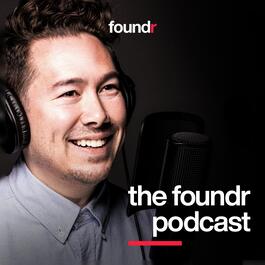
272: The Sweet Smell of Success: From Bankrupt to $100 Million, With Poo-Pourri’s Suzy Batiz
Suzy Batiz’s journey from bankruptcy to founding Poo-Pourri, a $100 million business that’s become a household name. For many consumers, the initial reaction to Suzy Batiz’s product is laughter. I know it was for me. I remember back in 2008, my mother waving me over to the checkout register of our favorite boutique soap shop, giggling uncontrollably. I saw the tiny bottle and laughed out loud myself. Then handed one to the cashier. After all, you just can’t walk away from a product called Poo-Pourri. But it’s Batiz who has had the last laugh. A little over a decade since it launched, Poo-Pourri has become a household name and a $100 million business. The all-natural air freshening spray, once a boutique-only brand, is now sold by major retailers like Target, Costco, Walgreens, and more. Poo-Pourri has taken the world by sweet-smelling storm. Given her success, you probably wouldn’t have guessed that Batiz had previously gone bankrupt (twice!) and once swore never to launch another company ever again. With a list of former businesses so long she can’t even name them all, Batiz had always come up short in pursuit of her big break. It wasn’t until she failed hardest and stepped away from the world of entrepreneurship entirely that she had her life-changing epiphany. The journey from broke to multi-millionaire wasn’t an easy one for Batiz. But her commitment to creativity, willingness to remain flexible, and her indomitable spirit helped her to shake the stink of failure and bring lovely aromas to bathrooms around the world. Sh*t Happens For years, Batiz was the kind of person who always had a full-time job and a side hustle, with another side-hustle in mind should the current one fail. “I had a lot of businesses, and nothing seemed to really work long term. Nothing stuck,” she says. “But I was desperately trying.” She’d owned a clothing store, a beauty salon, and a tanning salon to name a few, and she grew accustomed to taking big risks in the process. She learned early on how to bounce back from failure. For example, Batiz went bankrupt for the first time before she was even old enough to drink. At 19, she took on a bridal salon, and at 20, the salon had gone under. But that didn’t slow her down. “I was in this frantic race,” she says. “I was doing everything that you’re supposed to do, you know, pushing through.” She continued trying new business ideas until, in 1999, she experienced her second bankruptcy. This one hurt far more than the first. Batiz had sunk much of her own money into building Greener Grass, a recruiting platform designed to match employees with the right company cultures. If views were dollars, she would have been swimming in cash, but when the stock market crashed in 2001, so did her fledgling business. Batiz lost everything. “They took away the big house, the two cars, and I had to face myself,” she says. Batiz realized that all her life, she’d been chasing success—which really meant an overflowing bank account—without taking the time to find out what she was actually interested in. “What’s worse than losing everything is losing everything and realizing you didn’t even have fun to begin with,” she says. So, Batiz called it quits on the business world and decided to take some time away from it all for herself. During those years of self-discovery, she found the world of essential oils. A Breath of Fresh Air Ordinarily, if dinner party conversation trended toward discussing bathroom odor, it would be bad news for everyone involved. But when Batiz’s brother-in-law began to wonder over dinner if that unpleasant smell could be trapped and eradicated, sparks fired in Batiz’s mind. After the time she’d spent working with essential oils, she realized she might be able to create something that would do exactly that. Off she rushed to her kitchen to spend nine months concocting the perfect blend of oils that would one day become Poo-Pourri. In January 2007, she sold her first bottle. “I really wasn’t interested in owning another business,” Batiz says. “I had sworn off business, but the product was so good, I had to bring it to market.” She started with a website, and before long the wholesale requests came flooding in. Within a year, she’d brought in a million dollars in revenue. And it all happened through word of mouth. “When you have an idea that is great, people tell other people about it,” she says. “I see a lot of people in founder stages stop at a good idea. And if you just have a good idea, it’s like pushing a train uphill. But when you have a great idea, people will stand on the rooftops and tell other people about it.” Boutiques everywhere began selling little spray bottles of the cleverly named product, and before long, larger chains followed suit. Seven years after launching, Poo-Pourri was bringing in $8 million in revenue, Batiz spent 12 weeks a year in Maui, and she truly felt like she was living the dream. But she believed her product could truly breakthrough and become the premier bathroom air freshener if she just made a big enough splash. So, she decided to partner with the Harmon Brothers, the well-known creators of viral advertising videos, to create one of her own. You may recognize the Harmon Brothers’ name from their hit ad for Squatty Potty (yes the one with the unicorn you-know-what), or the Purple Mattresses “egg test” video. In September 2013, the now-iconic video of a sassy-yet-classy socialite in a turquoise dress proclaiming that “our business is to make it smell like your business never even happened,” burst onto the scene. In just four days, Batiz’s entire inventory had sold out, with $4 million in backorders waiting their turn to be fulfilled. With the explosion in sales, Batiz knew it was time to invest all of her attention in creating a stable structure for her business, while still maintaining her company culture. But how? Fear of Being Number Two There are three words that define everything done at Poo-Pourri: defy, liberate, and transform. “We don’t do things status quo, and we don’t ever want to,” Batiz says. “We’re over here shakin’ shit up.” Batiz strongly believes in hiring employees who can become experts in their areas without micromanaging, and can make big decisions. Of course, with that freedom comes the responsibility of owning up when those decisions don’t pan out. But Batiz believes the best idea can come from anyone or anywhere, so she wants to make sure every employee feels comfortable taking initiative. But above all, Batiz believes the thing that sets Poo-Pourri above the big air freshener companies is their ability to shift direction at a moment's notice. She calls that agility their “superpower.” So when the time came to build structure into the business, she knew it couldn’t come with the rigidity some organizations hold to. “We are this young, rebel kind of company,” Batiz says, “and how do you put some procedures in place, yet keep this rebel nature?” She tried bringing in a string of leaders, but with each attempt to establish a more defined system, the company’s culture died a little. So, Batiz had to find a way to balance shift-on-a-dime agility with much-needed stability. She realized that much of her stability could come from within her supply line. By keeping six months worth of sprayers (a part of the product that can take up to 16 weeks to arrive) in stock, she’d be ready for the next boom when it came. While the company’s edginess has provided a competitive advantage, that need to be the fastest or the hippest has also been a liability at times. As a rule, Batiz tries not to worry about the competition, but she once became aware that a product similar to hers was going to hit the market, using an automatic dispenser. In a fit of competitive panic, her company tried to release its own version, pushing through timelines and moving far quicker than they should have to keep up. As a result, they sold 500,000 faulty units to major retailers and had to take them all back, losing millions of dollars and three-quarters of a year in creative energy. “It was a really good lesson for us to keep our blinders on and stop worrying about what other people are doing,” Batiz says. “Sometimes the best lessons cost us a lot of money or time or energy. The key is to learn.” The Future Smells Sweet As Batiz heads into the future, she’s not that focused on expanding the Poo-Pourri line, although they have branched out here and there, including a shoe freshener line, and some clever bathroom art. “I’m not worried about the dollars as much as remaining king of the hill of what I’ve created,” she says. The focus on the core product is clear, as Poo-Pourri somehow manages to create a bathroom air freshener that is irreverent but not crass, all while avoiding the grandma’s house aesthetic of most bathroom products. The smells are creative, the names are funny, the packaging sharp and sometimes even beautiful. Some could even be mistaken for luxury items. There’s an obvious level of care here placed on something we may not like to think about, but we all have to deal with. Batiz hopes to achieve and maintain the level of awareness brands like Kleenex and Band-Aid have, becoming totally synonymous with the product they sell. “What I want is when you have a “before you go” spray—knowing other people will enter the market—that they go, ‘Oh, do you have a Poo-Pourri,’” she says. “We are that iconic brand.” To achieve such iconic status without a cent from investors is nothing to sniff at. Batiz says that when times get tough, she sees many entrepreneurs race to investors for help. She, on the other hand, prefers to keep total control of her business and figure things out on her own. “If you have a problem with the problems, that’s a problem!” she says, laughing. “As an entrepreneur, all you do every day is solve problems, and they’re only going to get bigger.” But despite the big problems she’s faced both in her current role and past businesses, Batiz has emerged triumphant. This year, Poo-Pourri is on track to bring in $100 million in revenue. The boutique essential oil concoction with a cheeky name now sits on bathroom counters around the globe. And she’s hoping the scent will continue to spread. Interview by Nathan Chan, feature article reprinted from Foundr Magazine, by Erica Comitalo Key Takeaways The many side hustles of Batiz, and the lessons in failure they taught her How Batiz went bankrupt in her teens The frantic race to find success How a second bankruptcy forced Batiz to take a step back and self reflect The question that sparked the idea for Poo-Pourri The power of word-of-mouth, and how it brought in $1 million in revenue in the first year How a partnership with the Harmon Brothers took Poo-Pourri to the next level Lessons learned on balancing structure with innovative company culture Why Batiz believes it’s important to not worry about the competition How Poo-Pourri got on track to $100 million in revenue this year A peek into Supernatural, Batiz’s newest company that sells home-cleaning products
From "The Foundr Podcast with Nathan Chan"




Comments
Add comment Feedback